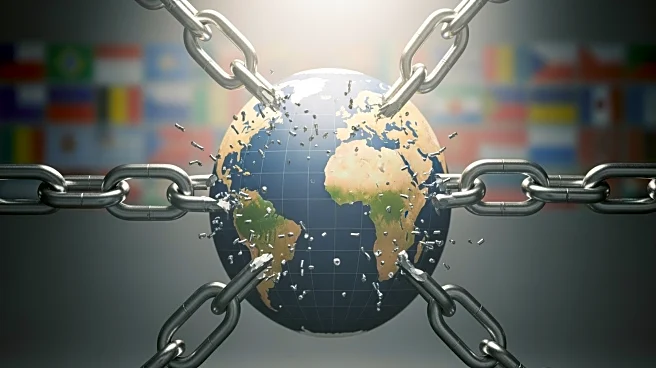What's Happening?
China has responded to President Trump's claims that it is conducting secret nuclear weapons tests, asserting its adherence to international nuclear obligations. President Trump announced plans for the
U.S. to resume nuclear testing, citing similar actions by China, Russia, Pakistan, and North Korea. This move would mark a significant shift in U.S. policy, breaking with long-standing international commitments. Energy Secretary Chris Wright clarified that the proposed tests would not involve actual detonations but would test other components of nuclear weapons. China's Foreign Ministry, through spokesperson Mao Ning, reiterated its commitment to the Comprehensive Nuclear-Test-Ban Treaty (CTBT) and urged the U.S. to uphold its obligations.
Why It's Important?
The potential resumption of U.S. nuclear testing could escalate global tensions and contribute to an arms race, undermining decades of disarmament efforts. Such actions could destabilize international relations and provoke similar responses from other nuclear powers, impacting global security. The U.S. decision could also influence its diplomatic standing and relationships with allies and adversaries alike. China's response highlights the importance of maintaining international treaties and the potential consequences of deviating from them.
What's Next?
The international community will likely monitor the U.S.'s next steps closely, with potential diplomatic discussions or negotiations to address the implications of resumed testing. Reactions from other nuclear powers, as well as non-nuclear states, could shape future disarmament and non-proliferation efforts. The U.S. administration may face domestic and international pressure to clarify its intentions and ensure compliance with international norms.










